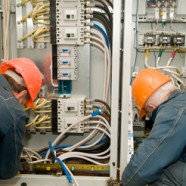
An electrical service may not seem important to many people. After all, how many amps do you need for your lights? The answer to this question depends on where you live, and what you use your electrical service for. Most homes will have at least one circuit breaker for electricity to run through. This breaker will turn off the power if the electricity reaches the maximum amount of amps, which is generally more than most homes use. Most homes will have a minimum amperage of at least 100 amps.
Amperage, in essence, is a measure of how much electricity flowing through a circuit, and that number can vary greatly. Most homes have a circuit breaker that will turn off the power if the amperage reaches the maximum. This means that if your home has a lot of electric use, it is probably wise to invest in more fuses and safety fuses to help keep you safe from any dangers of overuse. If you have ever done any research on electricity, you know that when too much of something is present, it can be dangerous. This danger is present in all electrical services, but it is particularly present in larger homes with more electrical usage.
Before you hire an electrical service company, you should check that your home’s wiring and the electrical utility company’s rules for installing and servicing your home’s wires. It is usually required that the electrician you hire has an agreement with your utility company to work with them, as they are the only ones allowed to connect and disconnect the wires. You will also find that each electrical service has different regulations concerning installation and wiring of both appliances and circuit breakers.
Many residential homes have multiple appliances. In this case, you will need to ask the electrical service panel whether you can install more than one breaker or fuse. Most new construction homes are built with two 120vac system hook ups, however some older homes might have single or multiple systems hooked up. There are typically three types of circuit breakers available: wet-line breakers, dry-line breakers, and combination breakers. A wet-line breaker stops the power from both appliances at the same time, a dry-line breaker stops the power from either appliance and grounds to ground in order to prevent the possibility of a short, and a combination breaker is designed to protect your appliances as well as supplying adequate power to both. The amount of current flowing through your house depends on the strength of each breaker, so you will need to verify with the service panel before hiring the electrician which type will provide the safest amount of current.
Some homeowners prefer to use bus bars to protect the wires running between their appliances. While this does reduce the chance of damage to the main breaker box, this type of protection can increase the amount of current flowing through your house. Although most electricians can replace bus bars, it is always best to ask them to add extra protection.
When dealing with a damaged or overloaded electrical system, it’s always best to consult an electrician before attempting to make repairs. It may be possible that your existing wiring has caused too much demand on the grounding wire or the breakers, which means that a complete overhaul of your entire system could be necessary. Although the odds of having to go to a professional electrician rather than doing it yourself are great, it is important to know what electrical conditions your home currently enjoys.
It is important to understand what loads your home experiences. For example, your water heater draws a lot of power from your house’s main electric panel. If there is too much pressure, then the water heater can become damaged or overload. Similarly, any appliances that draw electrical power from your house (such as hair dryers, computers, etc) can overload your electrical panel. To solve these problems, an electrician will recommend circuit-breaking loads or load switches that will reduce the current that your appliances or other items draw from the electrical panel.
The final part of a service panel is its clearance. This is the area where a professional electrician connects the new wiring to the existing wiring. If your new wiring does not have the same clearance as your old wires and connections, it can create damage to your electrical panel. A clear area should be at least 2 inches above the floor. Your electrician will also give you recommendations for making the new wiring run more smoothly, avoiding possible interference with other wiring or appliances, and adding protection by using earth ground wire to protect the new wiring from damage caused by submersions.
Artisan Electrical provides a comprehensive range of electrical services that cover all facets of building maintenance and construction. Get in touch with electricians kew for a free quote.
